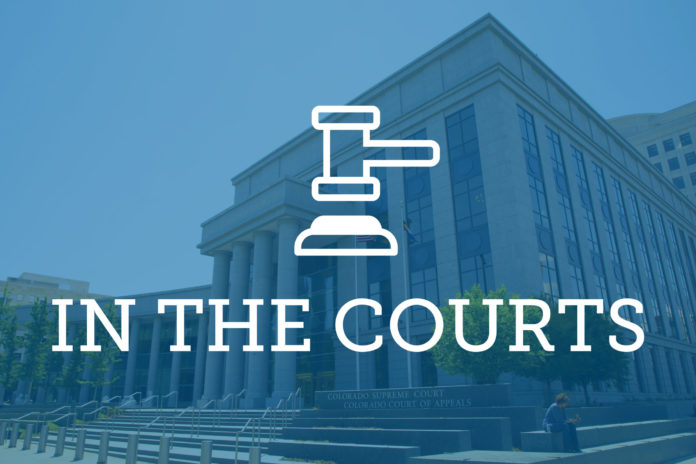
Editor’s Note: Law Week Colorado edits court opinion summaries for style and, when necessary, length.
This appeal concerns a dispute over a facility designed to treat wastewater from natural gas hydraulic fracturing operations. Antero primarily relied on “deep well injection” to discard fracking wastewater in disposal wells, but as this posed economic, technological and environmental challenges, it sought an alternative solution.
Antero approached Veolia to design and build Clearwater to separate and crystallize the solids within fracking wastewater to create waste salt to be landfilled, leaving water clean enough to reuse or release into surface waterways.
The companies entered into several contracts for this purpose, ultimately agreeing on a design/build agreement worth more than $250 million. The agreement included two requirements for Clearwater, one relating to the characteristics of the waste salt and the other relating to the facility’s power consumption. According to the opinion, both requirements later proved problematic.
Clearwater never met some of the agreements crucial contractual “milestones,” according to the opinion.
In March 2020, Veolia and Antero separately sued each other, and the cases were consolidated. As relevant in this opinion, Antero brought claims for breach of contract and fraud.
The district court found that Veolia breached the agreement when it failed to meet its deadlines and that it defaulted on the agreement. It also found that Veolia fraudulently induced Antero to sign the agreement and a change order.
In determining damages, the district court found that the “economic loss rule” didn’t bar Antero from recovering damages for fraud. It also found that a “benefit-of-the-bargain” approach was the proper measure of damages for both claims.
The district court ultimately awarded a subtotal of more than $215 million to Antero.
Veolia appealed.
The Colorado Court of Appeals held that the economic loss rule didn’t bar Antero’s intentional tort fraud claims against Veolia because Veolia’s common-law tort duties were independent of its contractual duties and of the implied duty of good faith and fair dealing that exists in every contract.
The appeals court affirmed the district court’s judgment and damages award and remanded the case so the district court could calculate reasonable appellate attorney fees and costs to Antero.
Brian Prendergast appealed the district court’s order denying his motion to seal his class 3 felony convictions for theft and securities fraud.
As a matter of first impression, the Colorado Court of Appeals concluded that Section 24-72-706(2)(a)(VI)(J) of the Colorado Revised Statutes—which prohibits the sealing of records for convictions subject to “[s]entencing for an offense classified as a class 1, 2, or 3 felony or a level 1 drug felony pursuant to any section of title 18”—prohibits the sealing of records of all class 1, 2 or 3 felonies, including those established by statutes outside title 18, and all level 1 drug felonies under title 18.
The appeals court concluded that Prendergast’s class 3 felony securities fraud convictions were not eligible for sealing and that his class 3 felony theft conviction was also not eligible for sealing, even though, since the time of his conviction, that offense has been reclassified to a class 4 or 5 felony.
The appeals court affirmed.

